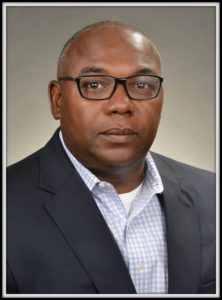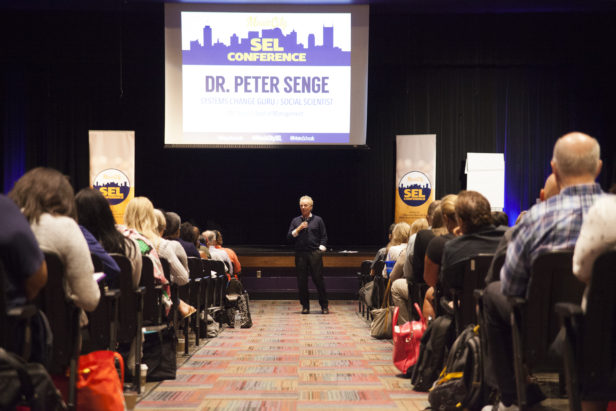Social Emotional Learning in Schools
By Anthony Johnson, Academy Fellow
Social Emotional Learning (SEL) strategies have emerged as powerful tools for school districts across the country in promoting and developing self-awareness, self-management, empathy, social skill and good decision making. The objective of these strategies is to promote “good learning” which Daniel Goleman (the founder of the Collaborative of Social Emotional Learning and co-author of The Triple Focus, A New Approach to Education) defines as “being engaged with what feels important, what we are enthused by and building the skills and constructs what we can get better at as we progress.” Goleman further believes that good-learning “happens best in a warm, supportive atmosphere, in which there exists a feeling of safety, of being supported and cared about, of closeness and connection. In such a space children’s brains more readily reach the state of optimal cognitive efficiency – and of caring about others.”
This high-water mark is the standard for the Social Emotional Learning work in Nashville where Alignment Nashville’s Behavioral Health Alignment Team works collectively with Metropolitan Nashville Public School and other community partners to create long-term systemic change around positive school climate, stronger support systems for students, improved student health, academic engagement and overall student success. This work is highlighted by an annual conference where SEL practitioners share best practices, learn about the value of interpersonal interactions and understand power and influence. The theme of the 2019 Music City SEL Conference, “Care for Self, Care for Others, Care for Community”, an initiative of the Alignment team, uplifted the idea that those serving the child directly must also care for their own needs and remain astute and responsive to external forces acting upon them. More than 850 educators, youth-serving professionals, and community leaders attended this year’s conference (for more information about the Music City SEL Conference please visit – http://www.alignmentnashville.org/behavioralhealth/selconference/).
During this year’s conference, Academy co-Founder, Peter Senge (Social Scientist, Systems Guru and co-author of The Triple Focus, A New Approach to Education), delivered a keynote address that focused on how the “effective implementation” of Social Emotional Learning (“SEL”) is a “systems” issue and highlighted that for SEL to succeed the following is needed:
- An executable curriculum;
- Institutional structures like good training to help teachers develop new skills, good coaching to translate these skills into demanding classroom settings and strong peer networks for teachers to help one another along the way; and
- The alignment of culture and priorities
Peter challenged everyone to shift their mindsets especially when it comes to professional development and how adults engage youth. Peter pointed out that young people know that their futures are at risk and cited the importance of using dialogue circles to provide students with opportunities to talk without adult interruption. Peter also suggested that the use of effective social emotional learning strategies provides good modeling for young people and serves as a counterbalance to the amount of awareness youth have regarding their communities and the world. On balance, truly effective social emotional learning strategies promotes care for self, care for others and care for our communities.
 Anthony Johnson is an Academy for Systems Change Fellow. He works as a consultant working with communities to disrupt inequitable institutional practices and cultural patterns. At his core, Anthony believes providing access to opportunities designed to produce equity is the most efficient way to address the adverse cumulative effects of disparity.
Anthony Johnson is an Academy for Systems Change Fellow. He works as a consultant working with communities to disrupt inequitable institutional practices and cultural patterns. At his core, Anthony believes providing access to opportunities designed to produce equity is the most efficient way to address the adverse cumulative effects of disparity.

